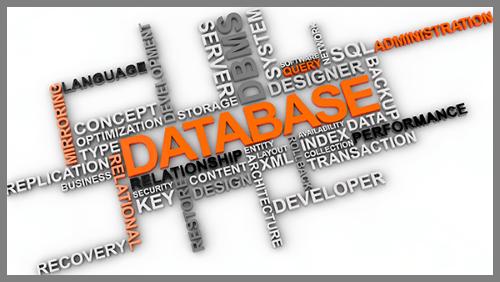
Database Management - Training, Courses and Certifications
India Education

Introduction to Database Management
The digitization of information has made the management and upkeep of databases much easier and fluid than ever before. Companies now store and manage their confidential information on databases and require professionals to maintain them. Broadly speaking, there are four types of database management systems,
Hierarchical
Network
Relational
Object-oriented
There are many different programming languages with which a database may be created. Some of the most popular ones are,
MySQL
PostgreSQL
SQLite
Microsoft SQL Server
Microsoft Access
Oracle
dBASE
FoxPro
IBM DB2
LibreOffice Base
Students doing database management courses may be exposed to and taught principles, tools and techniques used in the design, programming, administration and security of database management systems.
Eligibility
10+2 from any recognized education board in the country.
One must be familiar with the scripting language being used in a particular database.
Bachelor of Engineering (B.E.), Bachelor of Technology (B.Tech.), Master of Computer Applications (M.CA.), Master of Science (M.Sc.), Bachelor of Science (B.Sc.) or similar degrees could be the eligibility criteria at some institutes as well.
Scope of Database Management
Database Management systems are widely used by companies and organizations to maintain and manage their knowledge and information resources. After completing a database management course, students might work in any number of industries including,
Automotive
Banking
Education
Legal
Insurance
Government
Pharmaceutical
Retail
As virtually all industries make use of database management systems at some level, the scope for career opportunities for database management professionals may be wide. Professionals in this field may work in the capacity of,
Database Analysis
Database Administration
Database Engineering
Business Intelligence Consulting
Software Implementation
Topics covered under Database Management & Database Administration
The curriculum of database management courses is subject to the language used in the establishment of the database management system. There are institutions that offer basic and advanced courses.
The curriculum for a basic database management course may include database design and application, relational models, relational algebra, SQL, XML data such as DTDs and XML Schema for query and validation.
Transformation languages could include XQuery, XPath and XSLT, database design in UML and relational design principles.
Other database subjects like views, indexes, authorization, transactions, triggers, integrity constraints, JSON, on-line analytical processing (OLAP) and NoSQL could also be taught, as they form the basics of database establishment and administration.
Short list of courses
A short list of courses in Database Management and Database Administration are mentioned below.
- Database Theory
- Database Administration
- Systems Analysis
- Web Application Database Development
- Computer Networking, Backup and Recovery
- Unix Operating System
Top Colleges/Institutions for Database Management
Below is a list of some institutions that offer database management courses in India:
DBAMetrix Solutions - Ahmedabad
Kepler Technologies - New Delhi
Aptech - Multiple Centres
NIIT - Multiple Centres
Related Links
Latest News
People Reading Now

CBSE Compartment Result 2023 OUT: Click For Direct Link



CSAB 2023: Special Round Registration Begins Today


